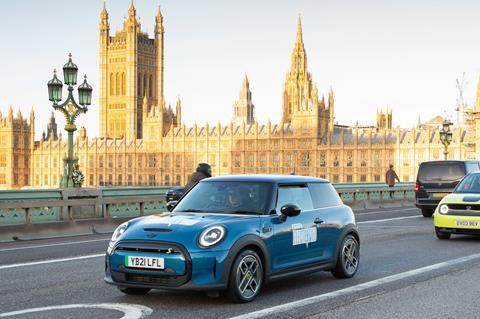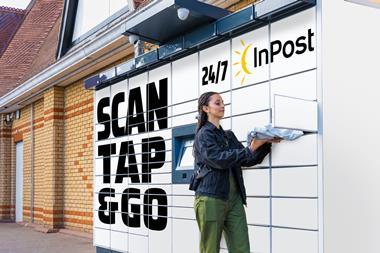- Fresh analysis reveals just 4.6% of car registrations by private buyers in 2020 were for battery electric vehicles (BEVs), compared to 8.7% for fleets and businesses.
- Industry sounds warning over 2030 ambition as retail incentives slashed, while 700 charge points need to be installed daily to support the market.
- SMMT unveils blueprint for electric revolution calling for all stakeholders to do more for consumers, focusing on incentives, infrastructure and industrial transition.
- Preserving Plug-in Car Grant and providing consumer VAT exemption could increase uptake by almost two thirds by 2026, compared to current projections.

The need for greater support to encourage private retail uptake of electric vehicles, has been highlighted by The Society of Motor Manufacturers and Traders (SMMT) following new figures showing businesses are twice as likely as consumers to make the switch from petrol or diesel.
SMMT analysis of new car registrations in 2020 show that just 4.6% of privately bought cars were battery electric vehicles (BEVs) – compared to 8.7% for businesses and large fleets. In total, consumers registered 34,324 BEVs in 2020, compared to 73,881 corporate registrations.
In response, SMMT has unveiled a blueprint to deliver greater retail uptake calling for government and stakeholders to prioritise overcoming consumer concerns through fairer incentives and a commitment to a dramatically expanded public charging infrastructure.
The call comes as SMMT gathers industry and government stakeholders at its first ever conference dedicated to electrification - ‘Electrified’ - with Secretary of State Grant Shapps, giving the ministerial keynote speech.
Mike Hawes, SMMT chief executive, said: ”Zero emissions motoring by 2030. An ambitious target. An ambition we share with government and with society.
”An ambition we can meet – but only if all stakeholders play their part. Only if government creates the right conditions for us, and for others. Only if it is a strategy, not just a soundbite.
”It is a more onerous target than has been set for any other industry in this country. Tougher than those set for aviation. Harsher than those for construction. More demanding than those set for the energy sector, the sector which is to power our electric vehicles.”
He said the government seems to have the automotive industry in its sights, but it seems to have lost sight of one vital player in this deal - the consumer. The people who will have to buy the products if this ambition is to be met.
Hawes stressed that one in four available models can now be plugged in, one in ten now powered purely by electricity; 150 models available, and the number is rising.
”But we will only succeed if the consumer thinks they are affordable, they are convenient and they are the right choice for them. This means giving people the incentives to buy them and the infrastructure to charge them. Both are currently lacking.
”If we are to ask consumers to change their behaviour, they need to be encouraged to do so. We can appeal to their good nature and their desire to save the planet but that won’t transform a market. The ownership experience must be cheaper, more enjoyable, easy. That is not yet the case.”
He said it was not It’s not so much a race to zero as a game of snakes and ladders - referring to the changing deadlines, grants and incentives.
He said consumer acceptance remains low because of concerns over affordability, charge point availability and infrastructure reliability. Around one in three households have no dedicated off-street parking, leaving them disproportionately dependent on public charging points – of which around one in 10 are out of order at any given time.
Businesses and company car drivers currently receive stronger and longer-lasting motivation through reduced purchase taxes and fiscal incentives compared to consumers. Both, however, felt the cut to the Plug-in Car Grant (PiCG) last week, the effect of which will add £500 to the cost of every BEV under £35,000, and £3,000 to those costing more than £35,000, as the grant is removed from electric vehicles over that price. By comparison, private buyers in Germany receive a €9,000 grant towards a new BEV, while Dutch drivers do not pay VAT on BEV purchases, equivalent to a purchase cost saving of around a sixth.
SMMT estimates that maintaining the PiCG and similarly exempting consumer electric vehicle purchases from VAT would increase uptake by almost two-thirds by 2026 compared to current predictions.
Given present projections suggesting the majority of drivers will choose to charge their vehicle at home if they can, SMMT also estimates that there would need to be around 2.3 million public charge points in service by 2030 to provide adequate coverage and tackle range anxiety – meaning more than 700 new charge points would have to be installed every day until the end of the decade. By comparison, the current installation rate is approximately 42 a day.
Hawes said: “While last year’s bumper uptake of electric vehicles is to be welcomed, it’s clear this has been an electric revolution primarily for fleets, not families. Manufacturers are committed to the consumer, reducing costs and providing as wide a choice as possible of zero-emission capable vehicles with many more to come. To deliver an electric revolution that is affordable, achievable and accessible to all by 2030, however, government and other stakeholders must put ordinary drivers at the heart of policy and planning. We need incentives that tempt consumers, infrastructure that is robust and charging points that provide reassurance, so that zero-emission mobility will be possible for everyone, regardless of income or location.
“When every market is vying for these new technologies, a clear and collaborative strategy engaging all would ensure the UK remains an attractive place both to manufacture and market electric vehicles, helping us achieve our net zero ambition.”

































No comments yet